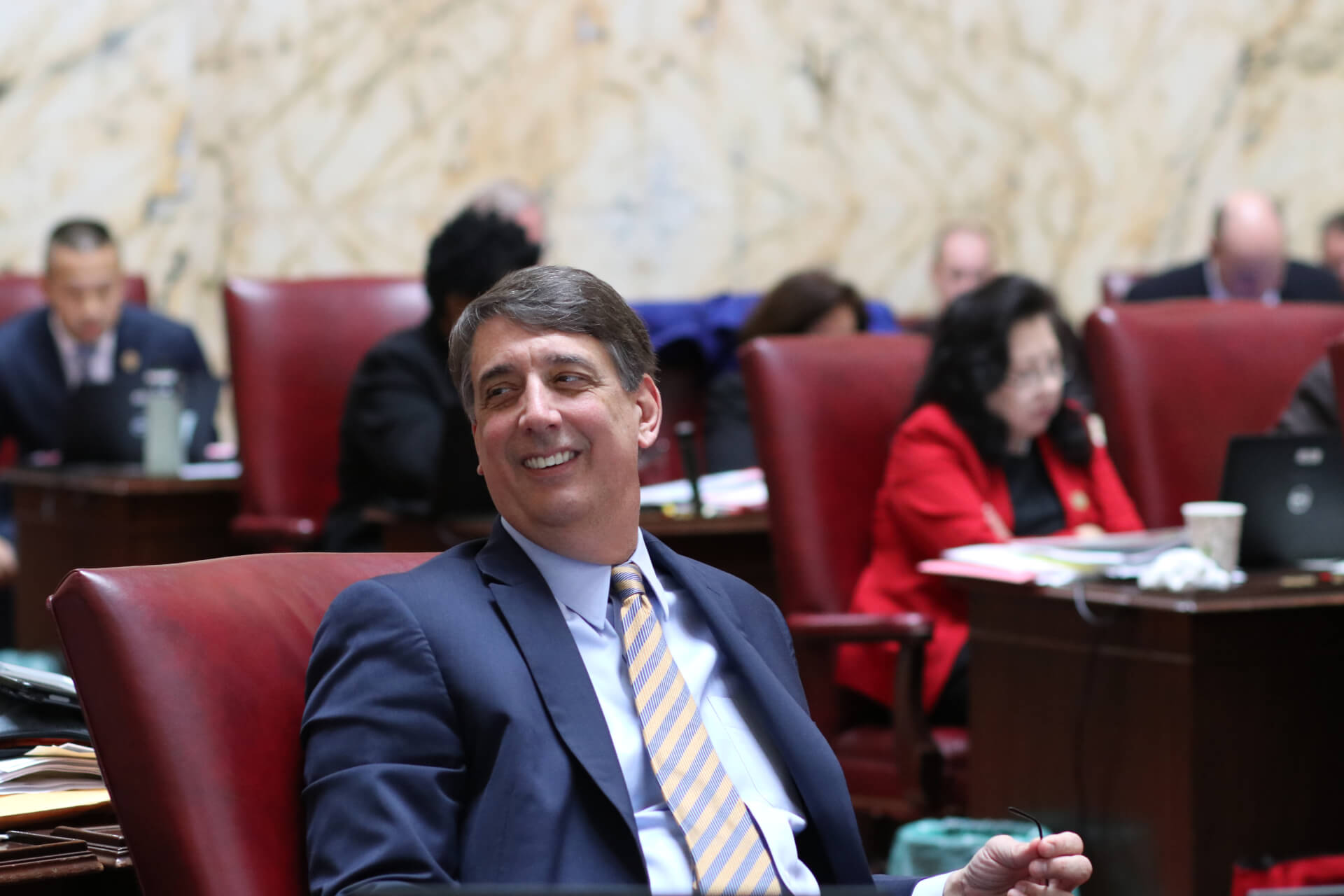Senate Moves Revenue Bills to Cover Education Reform Costs

Senate budget crunchers moved forward Tuesday afternoon on a revenue package that would expand Maryland’s sales tax to online streaming services, increase the tax rate on nicotine products, change corporate tax reporting policies and create a new tax targeting online advertisements.
The Senate Budget and Taxation Committee voted to move measures that could generate more than half-a-billion dollars in new annual revenue by 2025.
Funding from some measures would be dedicated to the Blueprint for Maryland’s Future, a decade-long $4 billion public school reform plan that was passed by the House late last week and is now moving in the Senate.
Budget and Taxation Chairman Guy Guzzone (D-Howard) said the measures approved by a majority of committee members on Tuesday would generate enough revenue to move forward with the education reform bill, though differences with a revenue package proposed by the House of Delegates will still need to be resolved.
Among the measures approved by the Senate committee on Tuesday were the “21st Century Economy Fairness Act,” which would extend the state’s sales tax to digital products including downloaded books, streaming services, satellite and cable.
The measure is co-sponsored by Sen. James C. Rosapepe (D-Prince George’s), the committee’s vice-chair, and Sen. Andrew A. Serafini (R-Washington).
“It basically amends the sales tax law to say that if you buy a digital version of a book online, you’ve got to pay the sales tax just as if you went into a bookstore and bought a hardcover book. Same thing with music, same thing with streaming,” Rosapepe said during the hearing. “…The economy has changed.”
Serafini said he decided to co-sponsor the bill because it brings fairness to the state’s tax code.
“From a pure policy [standpoint], it is just modernizing an existing tax. I think it’s fair,” Serafini said. “Other states have done it, so we have a model to follow.”
A fiscal analysis generated in February ― which did not include assessing the tax on cable services ― estimated that the measure could generate more than $150 million annually by 2025. Taxing cable services could generate an additional $35 million.
The committee also voted Tuesday on Senate Bill 2, which started as a measure to tax digital advertising sales. That measure is expected to generate up to $250 million in annual revenue in the first full year the tax is imposed, but is likely to face a challenge in courts. Added to that bill are provisions of two other bills:
- an increase in the state’s tobacco tax, which could raise $90 million after committee amendments, and
- establishing combined corporate reporting for some multi-state businesses in the retail, trade and restaurant industries, which could generate $60 million in revenue.
Senate Bill 2 now includes an unusual amendment that makes it a supplementary appropriation bill, which allows the Legislature to add money to the governor’s proposed budget. Typically, the General Assembly can only reduce or eliminate items in the budget, unless a new revenue source is created to cover an increased expense. The amendment would send $440,000 to the Chesapeake Bay Foundation for educational programs. Gov. Lawrence J. Hogan Jr. (R) cut the organization’s outdoor education funding in his proposed 2021 budget, choosing to fund education programs through 10 other organizations instead.
The revenue package could be taken up on the Senate floor as early as Wednesday, when senators are also scheduled to begin debate on the 2021 state budget.
Across the hall on Tuesday, the House of Delegates moved bills that are part of a revenue package that could generate up to $700 million by 2025.
The House gave preliminary approval to measures that would establish a corporate income tax “throwback rule” in Maryland and would increase taxes on tobacco products and electronic smoking devices.
One of the House bills includes an amendment that would direct an additional $577 million to Maryland’s historically black colleges and universities over the next decade, in an attempt to settle a long-running lawsuit against the state.
The House delayed debate on the cross-file of the digital downloads bill and a bill that would extend the state’s sales tax to some “luxury services” like fur cleaning, personal chefs and lobbying, among other services.
The Senate chamber on Tuesday gave final approval to a sports betting measure by a 47-0 vote.





 Creative Commons Attribution
Creative Commons Attribution